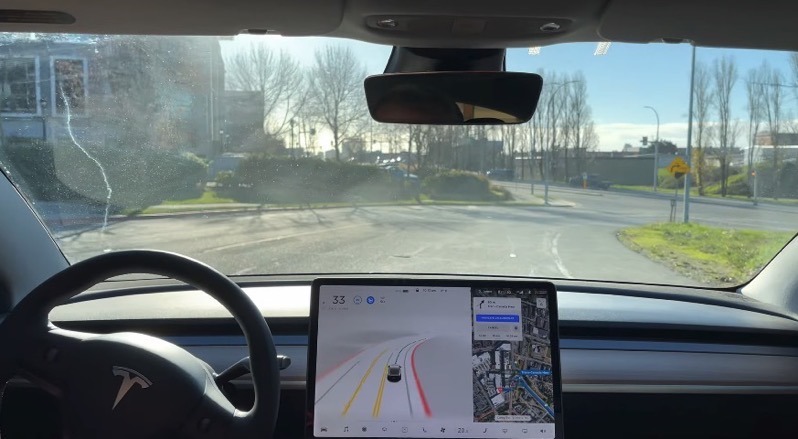
Tesla Misled Buyers on Autopilot Features, Claims NYT Exposé

The New York Times today published a deep-dive into Tesla’s Autopilot and Full Self-Driving (FSD) technologies after talking to a number of former employees who have worked on them over the last decade.
The 19 former employees–speaking anonymously–interviewed by The New York Times all said Tesla has tried to push the development of both Autopilot and FSD into directions other companies are unwilling to on account of concerns for driver security. Many claimed CEO Elon Musk outright misled buyers about the abilities (both current and future) of the company’s driver-assistance technologies.
The publication worked its way through Tesla’s switch from radar to camera-only Autopilot earlier this year, and how the company’s infamous driver-assistance technologies have fared since.
A number of accidents Tesla’s electric cars have been involved in over the years were also cited, including some more recent collisions with first response vehicles that have invited scrutiny from the U.S. National Highway Safety Traffic Administration (NHTSA).
The publication also explored Tesla’s branding of its suite of driver-assistance features as ‘Autopilot’, and its next-generation set of sister services (which are currently in beta) as ‘Full Self-Driving’.
Two former Tesla employees told the publication that Sterling Anderson, who led Tesla’s Autopilot efforts for a time and later co-founded an autonomous driving company called Aurora, advised Tesla’s sales and marketing teams against referring to either technology as “autonomous” or “self-driving” to avoid misleading the public.
According to two people who worked on Autopilot 2.0, many on the engineering team behind the project were concerned their CEO had promised way more than what the technology could deliver when he unveiled it in October 2016.
The exposé argues that Elon Musk and Tesla have made a habit of marketing their cars on promises instead of merit and that their driver-assistance technologies are a lot farther off from being as autonomous as they claim they will be in the near future.
Everyone who talked to The New York Times did so on the condition of anonymity, fearing retaliation from Tesla or the industry as a whole. The publication did reach out to Musk and a top Tesla lawyer for comment over several weeks prior to publishing but to no avail.


Anything regarding Tesla by the New York Times is either garbage, based on garbage or very soon to be garbage. They have had it out for Tesla since their early days in 2010 or so. Telsa doesn’t buy advertising, bad, bad Tesla!
I have over 3 years experience owning 2 Tesla’s. 1st one was Model 3 with FSD for 2.5 years. Aside from auto lane change FSD was an incredible waste of money. AP improved slowly but surely over the years to only have occasional phantom braking. Not enough to distract me to overall how well AP worked on long highway rides in good weather. Model Y Vision Only no FSD – August 2021 unit now. 1st month was incredible and had only 1 phantom braking event on the stock firmware from factory. Then a long an anticipated first over-the-air upgrade happened. Since the OTA firmware upgrade the Model Y is completely undrivable on AP or even distance aware cruise control. Constant slow downs and multiple extreme hard braking. 3-5 OTA firmware upgrades have not corrected the issue or even improved it. Tesla does not offer basic cruise control without sensors so your stuck on a $50,000+ tesla to use your right foot on accelerator highways. No one is in charge at Tesla on this one. I couldn’t a rats AS_ about FSD put Tesla appear to be more focused on FSD than functional and safe AP.